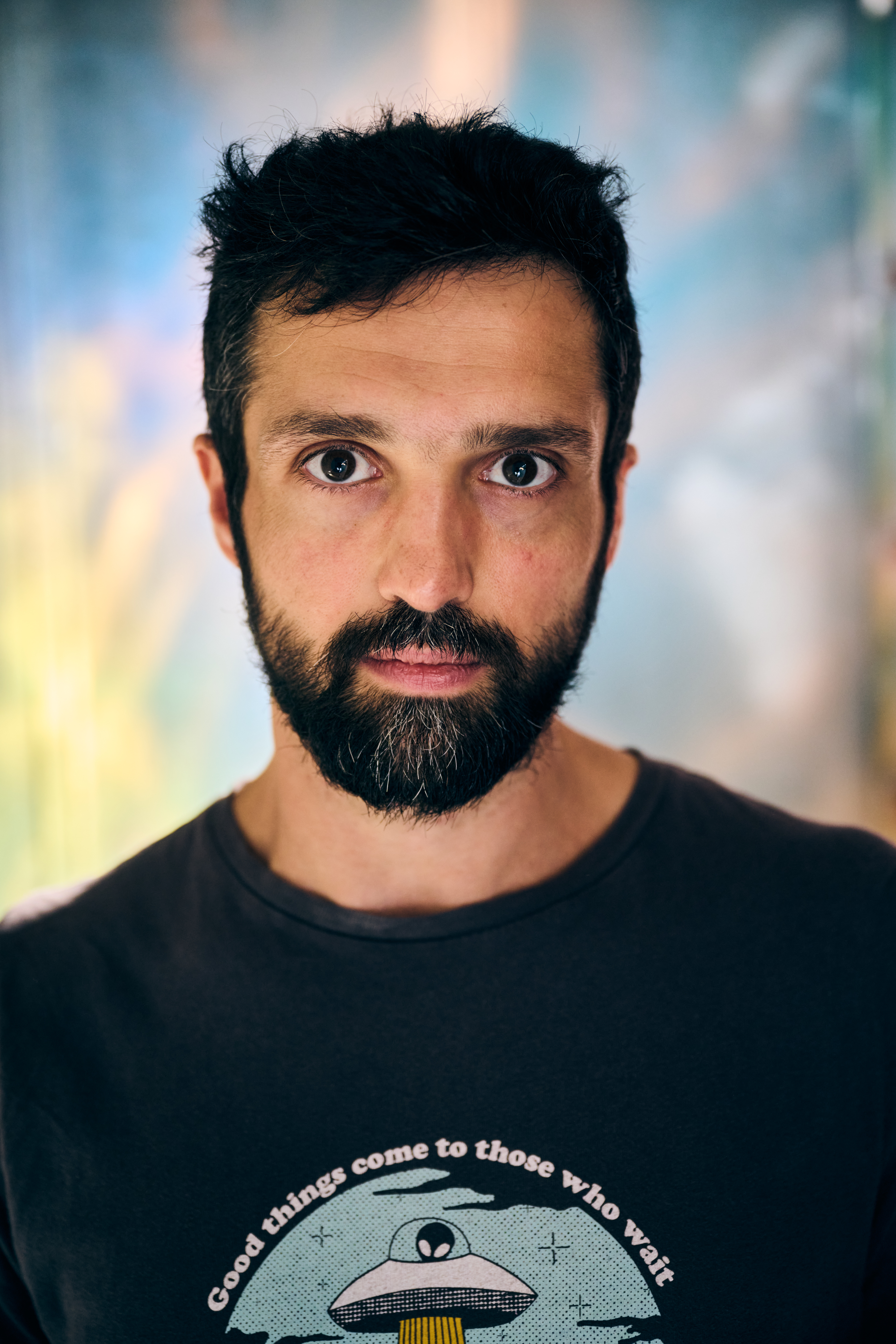Biography
Lorenzo Romano (Firenze, 1985) is an Italian composer based in Hamburg.
After obtaining a bachelor in contemporary history and a diploma in music composition in Florence, he studied instrumental and electronic composition at the Universität der Musik und darstellende Kunst Graz with Beat Furrer and Marko Ciciliani.
The encounters with composers such as Salvatore Sciarrino, Helmut Lachenmann, Pierluigi Billone, Brian Ferneyhough, Francesco Filidei, Dmitriy Kurliandskiy, Stefano Gervasoni had a big impact for defining his personal musical style.
His compositions have been supported by institutions such as Ernst von Siemens Musik Stiftung, Bundeskanzleramt Österreich, Musikfonds, Musikrat, Claussen Simon Stiftung, the European program “Youth in Action” and they have been awarded in international competitions such as Premio Valentino Bucchi, Concorso Internazionale Franco Evangelisti. His works have been performed in international festivals in France (Royaumont), Germany (Darmstadt, Hamburg State Opera), Austria (Oper Graz, impuls, Klangspuren, Wien Modern), Italy (Biennale di Venezia, Nuova Consonanza), Estonia, Croatia by performers such as Neue Vocalsolisten, Ensemble Recherche, Quartetto Prometeo, Schallfeld Ensemble, Donatienne Michel-Dansac and Antonio Politano. His music has been broadcast on national radios such as Radio3 (Italy), SRF2 (Switzerland) SWR, Deutschlandfunk kultur (Germany), ORF (Austria).
The concepts of transcription and elaboration connected with new technologies are at the core of his music. He works regularly with dancers and choreographers and in 2013 he is among the founder members of Schallfeld Ensemble, new music group based in Graz, Austria.
In 2018 he received the Kompositions- und Promotionsstipendium of Claussen Simon Stiftung in cooperation with the Hamburg State Opera and the Institut für kulturelle Innovationsforschung der Hochschule für Musik und Theater Hamburg. His opera La Luna has been premiered in June 2022 at the Hamburg State Opera. In March 2023 he defended his Phd dissertation at the Hochschule für Musik und Theater Hamburg. His artistic research “Rework: embedding the creative processes of Remix in the chamber opera La Luna” was evaluated with Summa cum Laude by the jury.
Awards and scholarships (Selection)
-
2023 Neu Start Kultur Stipendium, Musikfonds
-
2022 Neu Start Kultur Stipendium, Deutsch Musikrat
-
2018 PhD and Composition Scholarship, Claussen Simon Stiftung
-
2018 Working grant, Bundeskanzleramt, Austria
-
2018 Artistiv Residence, Cocoondance Bonn (New Composition for Dance)
-
2014 Scholarship for Voix Nouvelles - Royaumont
-
2011 Winner of the contest Oper der Zukunft, Opera Graz
Deutsch ︎
My Music
My compositional style appropriates, transforms and combines pre-existent sonic materials for creating new aesthetic and political discourses. In my work, therefore, the musical invention is the result of the encounter between the sonic world around me and my personal way to listen to it. I’m convinced that the way I hear is a creative act in itself. Through the years, I developed a musical style, which directly derives from this concept. In my music, I imitate, deform, deconstruct and recombine familiar sonic objects in order to produce new critical perspectives.
This artistic method is contextualized in the theoretical frameworks of the Remix Theory. Eduardo
Navas, the founder of the theory, defined remix as the use of all media for communication by way
of appropriation, repurposing, copying and mimicking. The digital revolution at the end of the XX
century, in particular, democratized the concept of sampling and remix, spreading widely these
creative practices thanks to new technological tools which relied on the operations of cut, copy &
paste.
In my work I bring this creative method into contemporary classical music, not only because I
extensively mix digital samples together with new composed music for classical instrument but also
because, through a personal adaptation of the concepts of cut copy & paste, I question the romantic
ideas of originality and authorship. The creative process for me is not anymore, a matter of creation
from nothing but it becomes an operation of engineering and editing. I see this idea in close
relationship with the original meaning of the word ‘composition’. The term ‘composition’, in fact,
comes from the Latin word componere that means ‘put in relation’, ‘put together’. This paradigm
becomes an intellectual instrument to bring back my activity as composer to its etymological
meaning: ‘to put together heterogeneous material, to form an organic structure.
Lorenzo Romano Composer
lorromano@yahoo.it
︎ Soundcloud
Imprint
